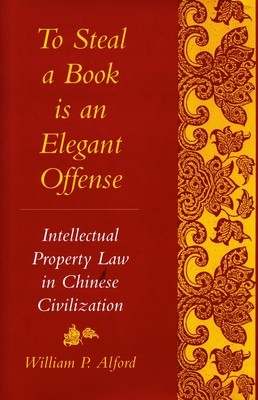
- We will send in 10–14 business days.
- Author: William P Alford
- Publisher: Stanford University Press
- ISBN-10: 0804722706
- ISBN-13: 9780804722704
- Format: 14.8 x 22.4 x 2.2 cm, hardcover
- Language: English
- SAVE -10% with code: EXTRA
Reviews
Description
This study examines the law of intellectual property in China from imperial times to the present. It draws on history, politics, economics, sociology, and the arts, and on interviews with officials, business people, lawyers, and perpetrators and victims of 'piracy'. The author asks why the Chinese, with their early bounty of scientific and artistic creations, are only now devising legal protection for such endeavors and why such protection is more rhetoric than reality on the Chinese mainland. In the process, he sheds light on the complex relation between law and political culture in China. The book goes on to examine recent efforts in the People's Republic of China to develop intellectual property law, and uses this example to highlight the broader problems with China's program of law reform.
EXTRA 10 % discount with code: EXTRA
The promotion ends in 16d.17:43:01
The discount code is valid when purchasing from 10 €. Discounts do not stack.
- Author: William P Alford
- Publisher: Stanford University Press
- ISBN-10: 0804722706
- ISBN-13: 9780804722704
- Format: 14.8 x 22.4 x 2.2 cm, hardcover
- Language: English English
This study examines the law of intellectual property in China from imperial times to the present. It draws on history, politics, economics, sociology, and the arts, and on interviews with officials, business people, lawyers, and perpetrators and victims of 'piracy'. The author asks why the Chinese, with their early bounty of scientific and artistic creations, are only now devising legal protection for such endeavors and why such protection is more rhetoric than reality on the Chinese mainland. In the process, he sheds light on the complex relation between law and political culture in China. The book goes on to examine recent efforts in the People's Republic of China to develop intellectual property law, and uses this example to highlight the broader problems with China's program of law reform.


Reviews